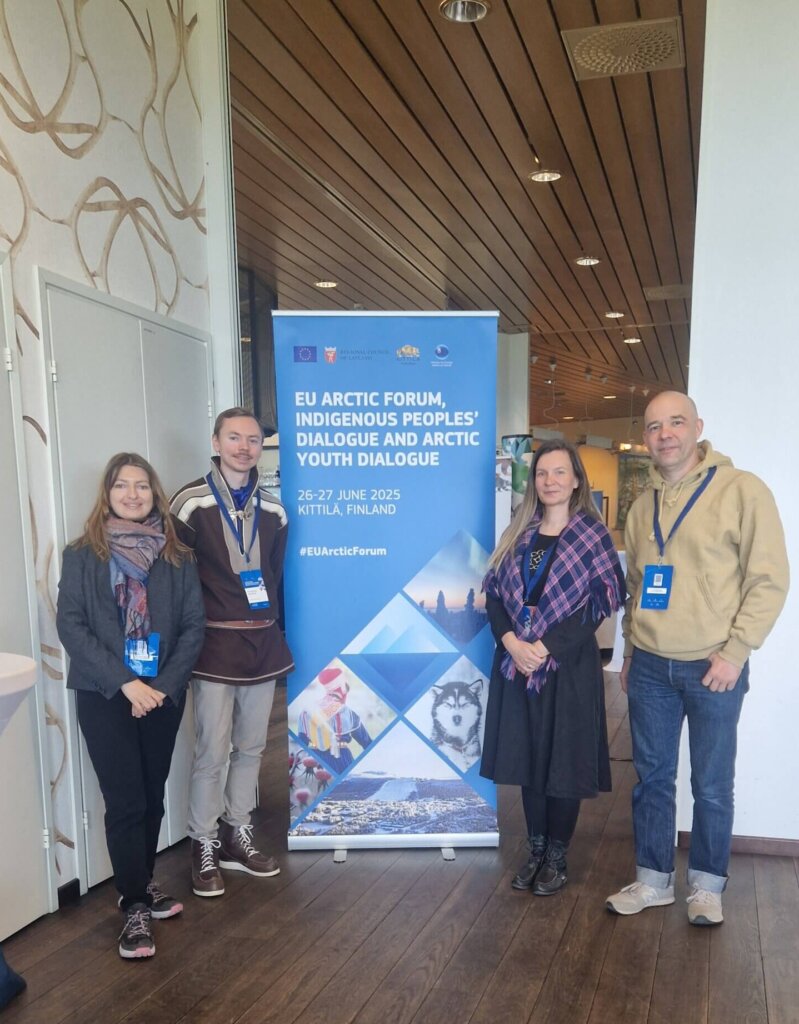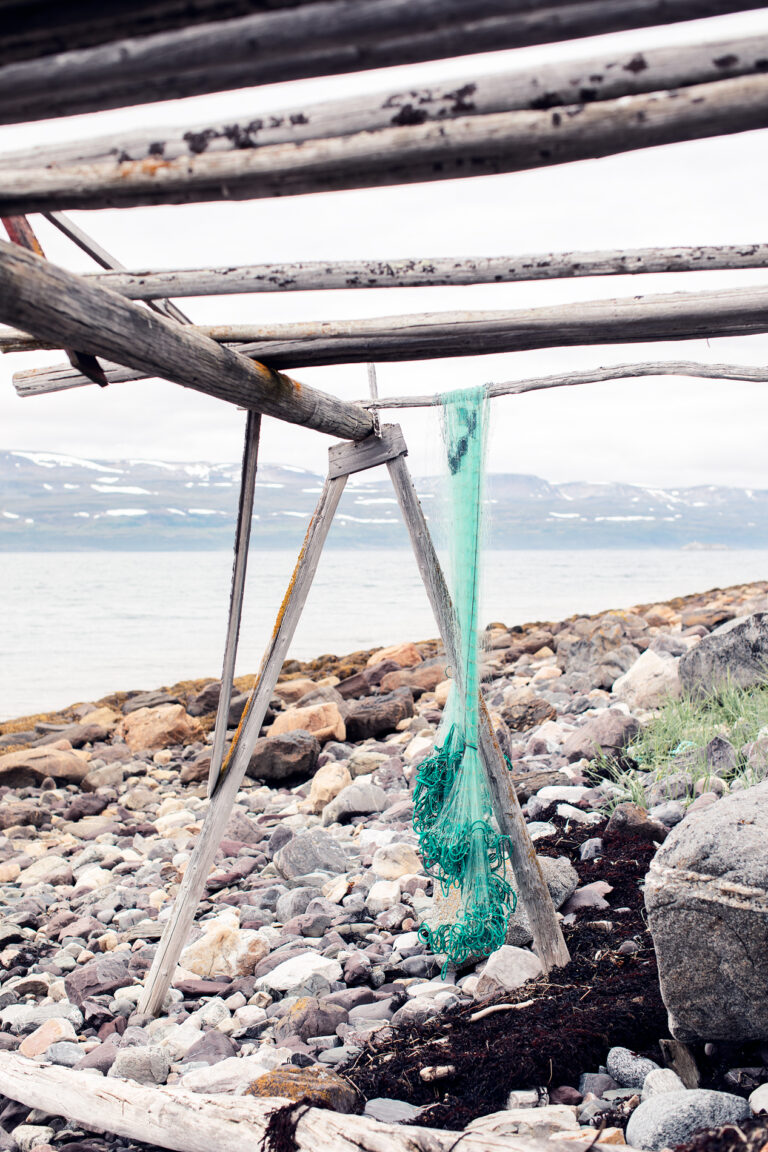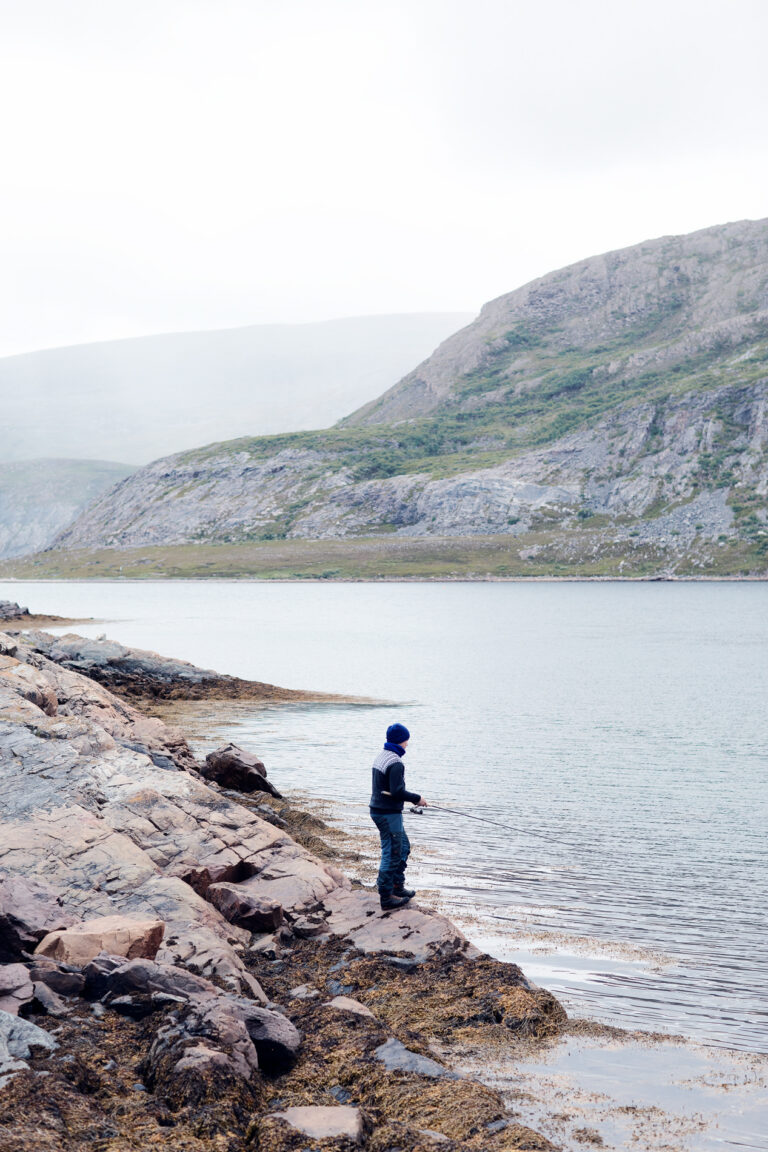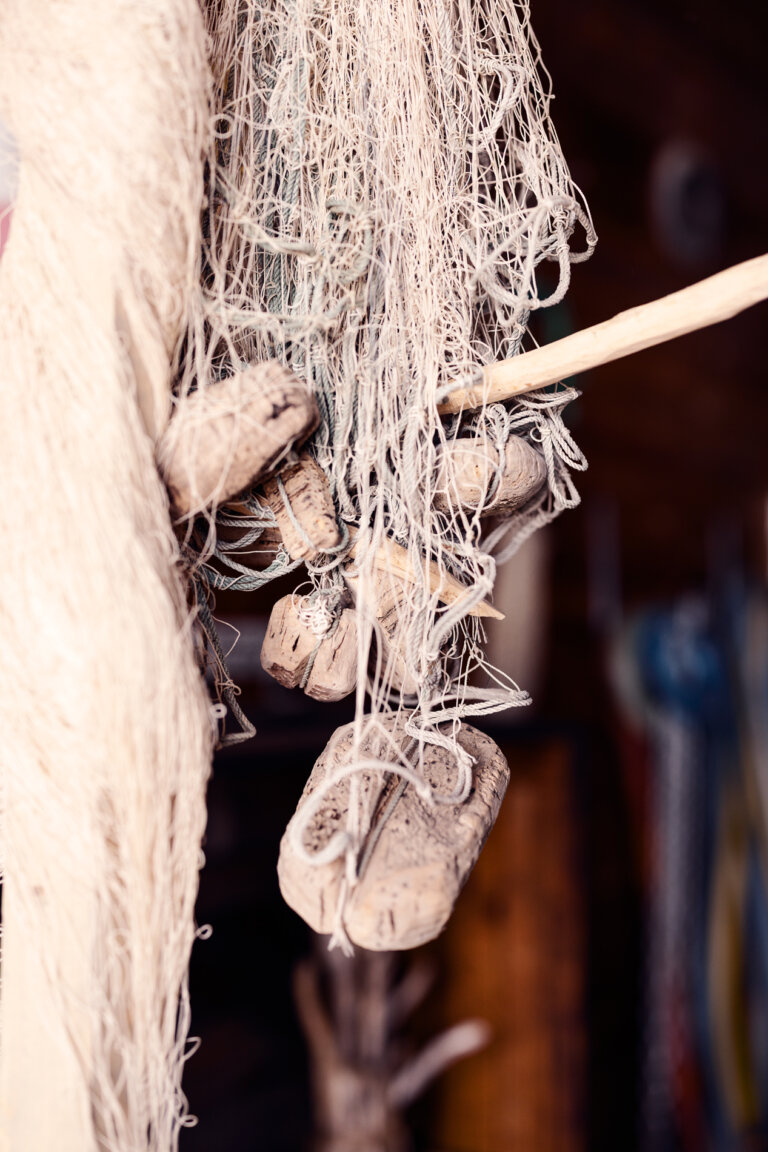“We need to be recognized as rightsholders and not stakeholders”
From the 25th to the 27th of June, in Levi, Finland, the EU Arctic Forum, Indigenous Peoples’ Dialogue and Arctic Youth Forum took place. Here, different organizations, institutions and researchers shared perspectives on the future of the Arctic.
Colleagues Stephan Dudeck (University of Tartu), Áile Jávo (Saami Council), Per-Henning Mathisen (Saami Council), and Ilaria Sartini (Research Institute for Sustainability at GFZ) joined the three-day event.
During the Forum, a variety of topics concerning the Arctic were discussed, such as sustainable and industrial development, further inclusion of Indigenous people, as well as the recognition of the Arctic as a strategic hub, as highlighted by the words “More EU in the Arctic and more Arctic in the EU”. Going in this direction, our project BIRGEJUPMI wants to create a space to actually contribute in the direction of sustainability, understood as a guiding concept to secure and foster humane living conditions for all people worldwide, in the present and future, and to facilitate restoring and preserving the environmental foundations to enable this. This entails co-creation among Sámi institutions, civil society, and non-Indigenous partners from other countries. With our work, we aim at making a contribution towards this and to provide European institutions with the tools to approach issues of ethical engagement, land use, resource management and Indigenous leadership -among others.
On the last day, Per-Henning (Saami Council) enriched the debate by taking part in the roundtable about the impacts of climate change on the Arctic Ocean. Per-Henning presented on stage the perspective of Sámi communities in Finnmark on how the consequences of global warming have effects both in the waters, lands and the Sámi culture itself. He stressed the interconnectedness of ecosystems, how climate impacts in the ocean are also affecting livelihoods on land, such as reindeer herding. In addition, the disruption of ecosystems affects the language system related to weather patterns, fish, ecosystems, which eventually translates into a cultural loss.
To the question “What support do Sámi people need from governments and international organizations to adapt to the challenges posed by climate change?”, Per-Henning answered:
“Sámi people need legal protection and land and ocean access because livelihoods depend on movements across land and waters. This requires policies that protect seasonal grazing and fishing rights against industrial activities. Sámi communities also need support for Sámi ocean and climate knowledge. Sámi knowledge holders have seen marine changes for generations. I could mention my grandfather, who was a fisherman and a small-scale farmer. He was a spokesperson for the fishing rights in the small local fjord in my home area, Unjárga, and when there were plans of starting fish farming in one of the local fjords, he was strongly against this because in Unjárga they had heard from fishermen in the nearby coastal areas and fjords about the changes and impacts on the ecosystem that the fish farming brought. These knowledge holders have attained their knowledge for generations and also seen how the changes have been long-term and that is why it is important to include support. We need co-governance and true partnership. We need to be recognized as rightsholders and not stakeholders, also in ocean and climate policy making.”
Following up on this, Per-Henning highlighted the ongoing Riehpovuotna/Repparfjord-case, where the mining company Nussir ASA plans to open a copper mine in the reindeer calving area of Fiettar reindeer herding district and to dump the mining waste in the National Salmon fishing fjord, Riehpovuotna, on the Norwegian side of Sápmi. This mining project is selected by the EU as a strategic project under the Critical Raw Material Act (CRMA). Per-Henning emphasized the serious risks that the mining project Nussir poses to Sámi culture, lands and ways of life.



